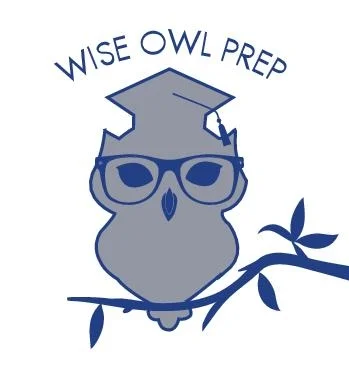Wise Owl Misson
Wise Owl Prep aims to provide students with the skills and confidence to succeed on high-stakes standardized tests and in academics generally.
Guiding Principles:
- High-quality education acknowledges the value of every student. Every student is intelligent, capable and teachable, and every student has something to teach. It is the responsibility of a teacher or tutor to engage with each student on his or her level, and to connect with that student in ways that make sense to him or her.
- High-quality education values diversity as an end-in-itself. Cultivating a nimble, sharp mind means being able to see the world in a variety of ways; creativity and ingenuity are collaborative, and result from attentive conversations across difference.
- High-quality education means valuing relationships and mastering content. Great tutors make themselves available whenever possible, in whatever ways possible. Every student should feel comfortable expressing doubt, weakness or inability; every tutor should set clear goals and standards, and should earn trust and inspire confidence in his or her students.
- High-quality education is a public good and a basic human right. We charge for our services out of necessity, but we will make every effort to make our services available to any student who needs them.
Wise Owl Philosophy
Learning For the Test
Learning should be engaging, exciting, and fun-- and I work with students to make sure that it is.
I believe that every student can learn how to succeed on standardized tests. I also believe that it is possible to study for standardized tests in a way that transforms a student’s thinking beyond the content of the test. Therefore, I see the process of studying for high-stakes tests as an opportunity to introduce my students to worlds of thought and learning that they may never have encountered before:
- Building vocabulary is not about studying word lists. It is about understanding the building blocks of language and how these are put together. Learning the structures and histories of words allows students to read "through the words" and access the stories of conflicts, migrations and interactions between cultures.
- Mastering grammar is not about learning a list of rules. It is about learning to think critically about the connections between sentence structure and meaning, learning how to deploy ambiguity or clarity with a clear rhetorical purpose. This means learning why grammatical rules exist as they do, and how or why they should or should not be broken in certain cases.
- Improving critical reading is a process that will be central to every aspect of a student’s life. SAT and ACT passages offer students a “sandbox” that can be harnessed to help each student understand the nuances of argument and counter-argument, evidence, figurative language, voice, tone, and other aspects of written texts.
- Learning mathematics is about understanding how mathematical concepts are expressed in every part of our world—from Fibonacci sequences in seashells to Euclidean geometry in skyscrapers. Doing SAT and ACT math successfully means mastering a toolkit of different strategies or approaches to problems, and using appropriate elements of this toolkit to figure out how to solve problems in ways that are effective, efficient and elegant.
Learning Beyond the Test
While the SAT and ACT are incredible resources if harnessed properly, we also believe that high-stakes testing is bad educational policy—it encourages students to fear the test and the testing process, and leads students to believe (wrongly) that something as complex and multifaceted as intelligence can be fitted to the constraints of a four-hour, written exam. We believe that students should be encouraged to master each test, but should also be encouraged to understand each test's limits and constraints. Therefore, when working with students, we encourage:
- Learning how to be successful on each test the student takes-- not only by knowing the content, but also by "working the test";
- Learning the advantages—and flaws—of each test, and how these relate to the student’s goals, and are likely to affect the student’s ability to achieve these goals;
- Learning to think critically about the advantages and disadvantages of high-stakes testing as it relates to education. We work to cultivate within each student the knowledge and confidence that encourages him or her to voice any concern or frustration he or she has with the process. Students should approach these exams with confidence and self-reliance, but should understand that performance on high-stakes tests is not a measure of intelligence or self-worth.
